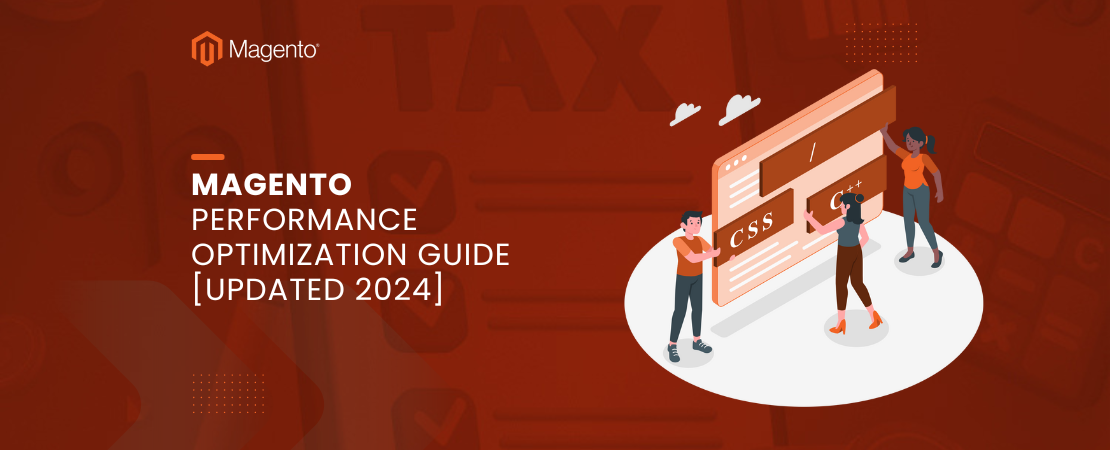Technology has impacted modern businesses across all fronts. Companies today are increasingly getting engaged with technology to remain competitive and grow. eCommerce is the ultimate progression of businesses into the digital world. The eCommerce marketplace introduces traditional businesses with numerous features and benefits over brick-and-mortar stores, opening more opportunities to increase sales and maximize revenues. Today, almost all companies maintain their online existence through online stores.
However, before you can create and start selling online, you need to choose the right web development platform to develop your online store.
Today, there are various eCommerce web development platforms available to cater unique needs of online merchants. However, deciding the best platform may be challenging; since each platform comes with unique benefits and limitations.
Since you are here, you must also be looking for the best possible eCommerce platform for your business website. Well, below, we have come up with a detailed comparison of Magento vs. Sylius – two powerful eCommerce website development platforms.
So, let’s get started!
Sylius Vs Magento
Let’s start our Magento vs. Sylius comparison by briefly introducing the two platforms;
– Sylius
Sylius is perhaps one of the best PHP frameworks that are based on Symfony. It’s an open-source eCommerce platform powered by Behavior-Driven Development (BDD) through Behat (another robust PHP framework). Interestingly, Sylius isn’t the most dominating/popular eCommerce platform, with only 2500+ online stores being powered by the platform. However, it does get over 50K monthly downloads. Nonetheless, it’s a compelling platform that brings in various features and functionalities to assist online merchants in dominating the eCommerce market.
The first version of the platform “Sylius – 1.0” was released in 2017, whereas the latest version (Sylius 1.9) was released in 2020. Sylius only offers one premium version (Plus) besides the free version called “Standard.”
– Magento
Compared to Sylius, Magento dominates the eCommerce market with hundreds of thousands of successful brands powered by the platform. Like Sylius, it is an open-source platform that’s developed on Zend Framework and written in PHP. The platform was initially released by Varien Inc. in 2008 and acquired by Adobe in 2018. Today, Magento remains the popular choice for some of the biggest global conglomerates, including Nike, HP, Helly Hansen, Nestle, and others. According to one estimate, over 800,000 online stores are powered by Magento.
Read Also Ecwid vs Shopify
Magento vs Sylius: Comparison
Now that we have a general introduction for each of the two platforms, let’s get into some more details and compare the key features of Magento vs. Sylius.
- Key Features and Functionalities
Sylius is a consistent and potent eCommerce platform offering adequate support, help, flexibility, customer service, product search, and other features for online stores. Moreover, online merchants can efficiently perform third-party integrations (CRM, Mailing, PIM, ERP, and others) using REST API to improve the functionality and features of the store. Sylius Plus (premium version) also offers users advanced out-of-the-box functionalities to streamline and manage functions for large businesses. Some of the features provided by Sylius Plus include; loyalty system, advanced multi-store management, advanced user permissions, returns management, and others.
Read Also BigCommerce vs Shopify Comparison
Magento also brings in some robust features and functionalities that assist eCommerce stores advance across all business fronts. Some of the advanced functionalities offered by Magento include; multi-channel network and storefronts, flexible pricing tools, inventory management, automated target rules, and many more. To add to its features, Magento also supports B2B functionalities with its exclusive B2B module. Magento B2B extension development opens up endless opportunities for B2B business models to streamline and manage sales and inventory management. With thousands of extensions available for seamless integration, Magento offers everything online merchants need to excel in today’s competitive eCommerce market.
- SEO And Marketing
SEO and marketing are essential eCommerce business fronts that influence the success and failure of the business. Without core SEO and marketing features, no online store can sustain and grow in the hostile eCommerce market. At a glance, Magento comes with all the SEO and marketing features essential for business growth, whereas Sylius lacks many aspects. Let’s take a more detailed look into the SEO and marketing features of each of these platforms.
One of the biggest reasons Sylius lag in terms of the number of stores powered by the platform is its minimal SEO and marketing features. The premium version (Sylius Plus) does offer some basic marketing features, including; email marketing, reviews management, content management, and others; it utterly lacks any SEO management functionalities. This leaves online stores with no other choice than to integrate third-party applications to backup the SEO of the eCommerce store.
As one of the most widely used eCommerce platforms, Magento brings in out-of-the-box advanced SEO and marketing functionalities, assisting online merchants to enhance the sales funnel and maximize sales. Even if some features are not available out-of-the-box, professional Magento web development services can be hired to integrate dedicated third-party apps for unique features. With Magento’s features and functionalities, it becomes easier for online merchants to enhance their visibility and search engine ranking. Also, advanced SEO features like Google 301 redirects, site map, personalized URL, and others help maximize ROIs for eCommerce stores.
- Pricing
When talking about Magento vs. Sylius, it’s important to consider pricing for the two platforms since it is essential for online merchants.
The basic Sylius Version (Sylius Standard) doesn’t require any subscription. However, the standard version only offers basic functions and features while it supports only simple websites. To access more advanced functionalities, you would have to purchase the “Sylius Plus” version, which would improve your options to optimize the eCommerce store. The final cost of Sylius Premium will depend on the Gross Merchandise Volume (GMV) model; thereby, you would have to ask for a precise quotation from the company only.
Like Sylius, the Open-source version of Magento is free of install. However, Magento also offers its premium version, “Magento Enterprise Edition,” which starts at USD 22,000 annually. You can also opt for the cloud version of Magento Enterprise Edition, which starts at USD 40,000 annually. Also, even for the free version, you may need to hire professional Magento development companies, which will eventually raise the store’s final price by thousands of dollars.
The higher price of Magento store development and management is the most significant reason why we get so many queries for Magento to Shopify migration. However, given the level of support, access to advanced functionalities, and scalability, it’s definitely a worthy investment for large enterprises.
- Scalability
Sylius is a highly scalable platform, which is one of the best advantages of the platform. Sylius can handle 500 simultaneous orders and boost the productivity of eCommerce stores by as much as 30%.
Magento is one of the best platforms when it comes to scalability. The platform’s robust platform has the capacity to handle up to 50k visits hourly. Apart from superior scalability, the platform offers a robust inventory management system, which can manage a vast number of products simultaneously, making it one of the best platforms for businesses of all sizes.
- Speed & Performance
When it comes to speed and performance, Sylius has a slight advantage over Magento. This is primarily because Sylius comes with a relatively easy and light framework to set up compared to Magento, which has a complex setup process (often requires professional Magento development companies). Generally, eCommerce webpages developed on Sylius load three times faster than Magento web pages.
- Security
Security remains one of the most crucial aspects for all eCommerce businesses. Cyber-attacks have increased at an alarming rate in recent years, forcing all companies to update security protocols to avoid falling prey to data theft and breaches.
Sylius offers adequate security protocols while also offering periodic security patches to avoid vulnerability. Businesses also have the option to download security extensions.
Magento, like Sylius, offers pretty robust built-in security features. Businesses can also download third-party extensions to beef up security protocols. Alternatively, Magento also releases periodic security patches to prevent hacking risks.
- Ease Of Use
When it comes to ease of use, Sylius is the clear winner. Thanks to the clean and tidy coding, Sylius offers a seamless development and management experience for users. The best part is, online merchants, don’t really need professional development agencies to design their stores. The simple development framework ensures an easy design and development process with minimum coding expertise.
Contrarily, despite all its benefits, Magento presents a challenging interface to master, especially for newbies and non-specialists. It’s a complex platform that requires extensive application of coding to get things right. To be able to leverage the full benefit of Magento, online merchants would have to hire professional development services to get started.
- Support
Sylius is a relatively new platform with limited community support. Fortunately, the platform does provide ample documentation, discussion forums, and tutorials to help users get started with the platform. With the platform’s increasing popularity, we hope that community support will continue to grow in the future.
Needless to say, Magento is the dominating eCommerce web development platform in terms of popularity and support. The platform boasts massive community support with over 300,000 users, who can help users with all their queries. Also, the premium Magento Enterprise Edition offers official support and assistance to online stores.
- Extensions And Plugins
As a relatively new platform, Sylius lacks the total number of extensions; however, there are many extensions to support all essential functionalities and features. Sylius has divided the extensions into twelve discrete categories to help users quickly find the extension they are looking for.
When it comes to Magento, the platform boasts over 4000 extensions and plugins that cover all aspects of eCommerce businesses. All third-party apps can easily be integrated with the store, offering online merchants with every feature and functionality they need to sustain and grow.
Read Also BigCommerce vs Shopify Comparison
Sylius Vs Magento: Which is the best?
Honestly, it is not easy to directly assume one win against the other. Each of these platforms brings unique advantages and limitations which need to be accounted for concerning individual business requirements.
Magento is better suited than Sylius for small businesses and startups looking for an easy-to-use and manage platform that doesn’t require much upfront investment. Even, Magento is the ultimate choice for enterprises and global conglomerates looking for superior functionalities and advanced features to support their rapidly increases sales and revenue.
FAQs:
1) Is Sylius cheaper than Magento?
Both the platforms offer free versions for necessarily required professional design and development services to set up.
2) How is Magento better than Sylius?
Magento is the ultimate dominating platform for eCommerce web development. It brings in powerful features and functionalities to support the rapid growth of online businesses. Some of the domains where Magento dominates over Sylius include; SEO, Marketing, Scalability, extensions & Plugins, and support.
3) What is the cost of Magento Store development in Australia?
The average Magento cost for store development in Australia is around AUD 10,000 to AUD 60,000+. The final price will depend on the store size, customization, and complexity.
4) How to find Magento professionals in UAE?
If you are looking for Magento professionals in the UAE, it’s best to find one online. This way, you will be able to compare the expertise and pricing of multiple agencies and choose the best agency per your needs.
5) Is Magento affordable for small businesses?
Yes. Magento development and maintenance is affordable for small and Medium businesses. Even, Startups can afford easily Magento development and maintenance both.
Related Blogs:
Magento vs Woocommerce: What is the Best to Use?
Magento vs Prestashop: Which is the Best eCommerce Platform?
Magento vs WordPress: How would you compare?
Magento vs Opencart: Which is best for an eCommerce Website?







